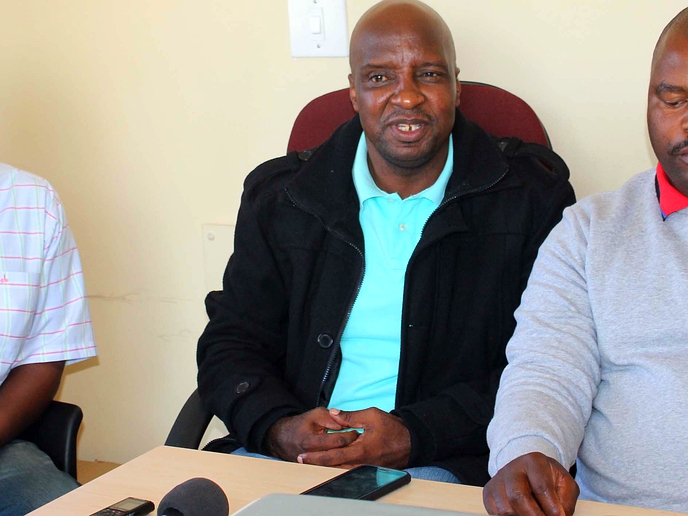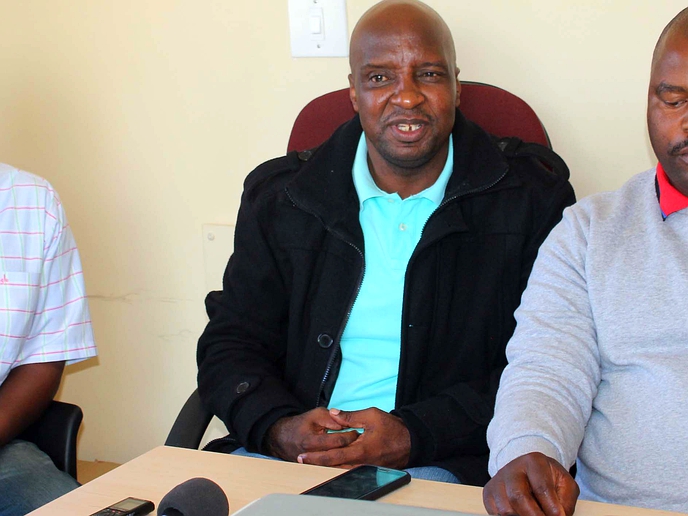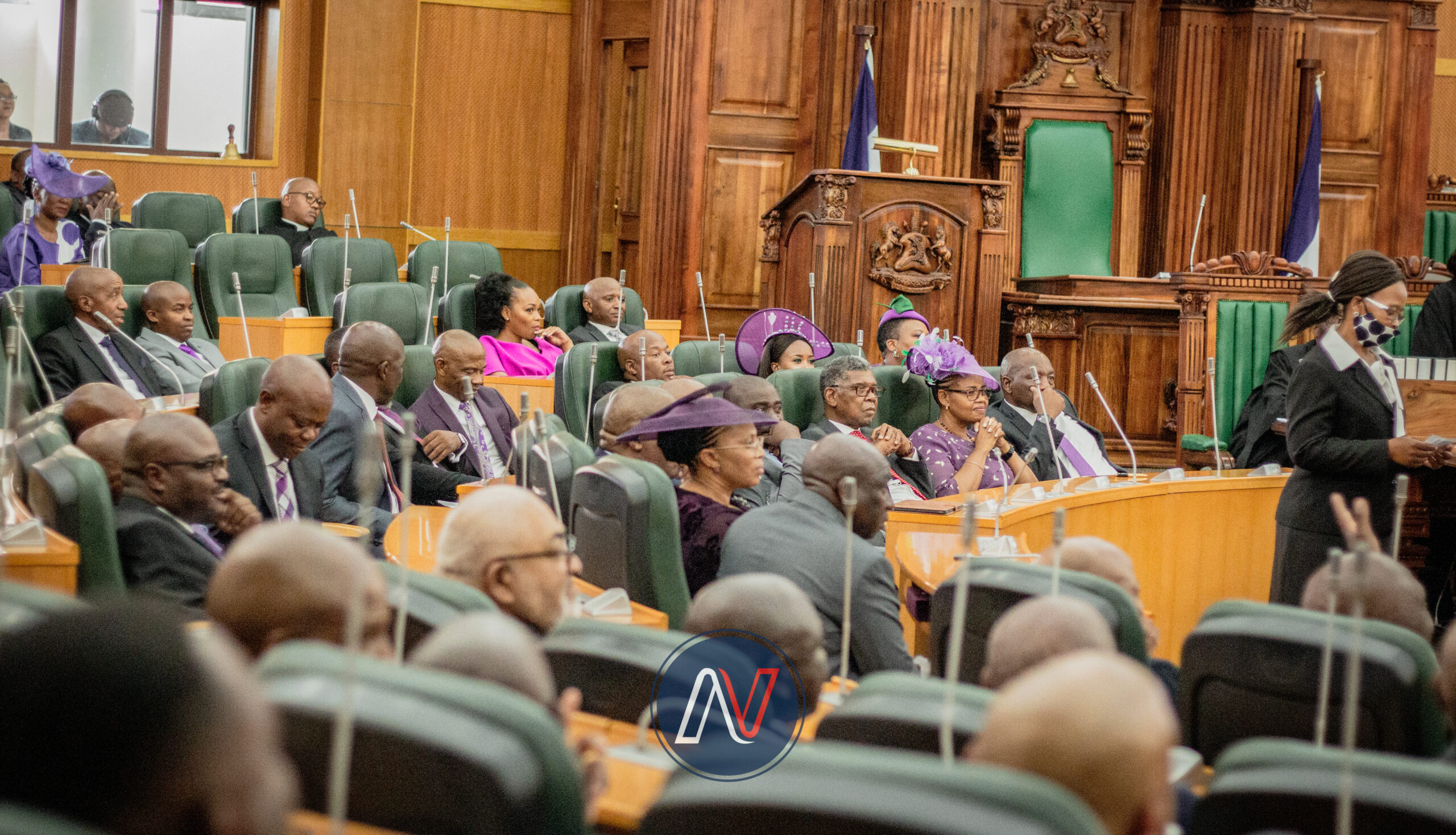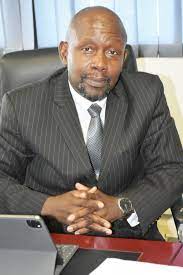Ntsoaki Motaung
Unionised taxi owners are planning a nationwide strike during the national assembly general elections scheduled for October 7 over governments failure to address their demands.
The strike will likely result in reduced public transport availability when it is most needed.
The chairman of the Taxi Owners Association of Lesotho, Mokete Jonase, disclosed at a press conference on Wednesday that the strike will begin on or before October 2, 2022, the day on which political parties are expected to hold their final rallies until the day of elections.
There will be no transport for their supporters to show-up during the last rallies and on the day of elections as well, there will not be transport to move people to their respective election posts, Jonase said.
He said this move is meant to mount pressure on the government to address their longstanding grievances.
Jonase told the press conference they had made all strides to find out from the government why it was snubbing them, but indicated that all their efforts were in vain.
He said several letters were written to the government, and they were promised by the government through the Ministry of Transport that it would sponsor their study tour to countries such as South Africa, Botswana and Eswatini.
The same promise, he said, was also made by Prime Minister, Dr Moeketsi Majoro, and his deputy, Mathibeli Mokhothu.
Jonase further explained that taxi operators had requested to go on a study tour to South Africa, Botswana and Eswatini to learn how taxi fare increments are handled, but the ministry of transport said it did not have money, and therefore could not afford to bankroll the tour.
The deputy prime minister who led the cabinet subcommittee assigned to deal with the taxi industry issues, offered to provide the funds for the trip to South Africa, Botswana and Eswatini to study how public transport is managed in those countries, Jonase said adding that a study tour by the local taxi industry was last undertaken in the early 2000s. Recommendations were made after the tour but were never implemented by the government.
Jonase said they had been given a mandate by their members to invite 10 leaders of political parties in and outside of parliament to a meeting on the 31st of this month.
He said they wanted to table their demands before the leaders who will in turn provide them with solutions.
The outcomes of that meeting will determine whether we proceed with the strike or not.
In an interview with Newsday in May this year, Jonase said apart from studying how public transport is managed in other countries, the study tour would also provide taxi operators with an opportunity to learn how public transport fares are set across all public transport services.
The Ministry of Transport said they do not have the budget to pay for the trip, but now that our issues are now being dealt with by the office of the Deputy Prime Minister, he will be the one sponsoring the trip, Jonase said in May.
When contacted for comment, Mokhothu, said this publication should seek answers from the ministry of transport.
Ministry of transports spokesperson, Ntumeleng Nts’ekhe, on the other hand, said the trip would be financed with funds from the deputy prime minister. Ntseke said she could only comment on the trip after the funds had been made available.
Ntšekhe’s comments dovetailed neatly with the remarks made by the transport minister, Tsoeu Mokeretla, in a letter to taxi operators dated April 19, 2022.
As the Minister responsible for transport, I have reported issues regarding the tour to the office of the Deputy Prime Minister who stated that the transport ministry should find out how much the tour would cost and we have done that, Mokeretla wrote.
Now the situation is that we will be provided with the funds to go to three countries that were chosen in consultation with the transport operators, the Republic of South Africa, Botswana and Eswatini. Operators will be represented by six people, he added.
Summary
- The chairman of the Taxi Owners Association of Lesotho, Mokete Jonase, disclosed at a press conference on Wednesday that the strike will begin on or before October 2, 2022, the day on which political parties are expected to hold their final rallies until the day of elections.
- The deputy prime minister who led the cabinet subcommittee assigned to deal with the taxi industry issues, offered to provide the funds for the trip to South Africa, Botswana and Eswatini to study how public transport is managed in those countries, Jonase said adding that a study tour by the local taxi industry was last undertaken in the early 2000s.
- The Ministry of Transport said they do not have the budget to pay for the trip, but now that our issues are now being dealt with by the office of the Deputy Prime Minister, he will be the one sponsoring the trip, Jonase said in May.

Your Trusted Source for News and Insights in Lesotho!
At Newsday Media, we are passionate about delivering accurate, timely, and engaging news and multimedia content to our diverse audience. Founded with the vision of revolutionizing the media landscape in Lesotho, we have grown into a leading hybrid media company that blends traditional journalism with innovative digital platforms.










